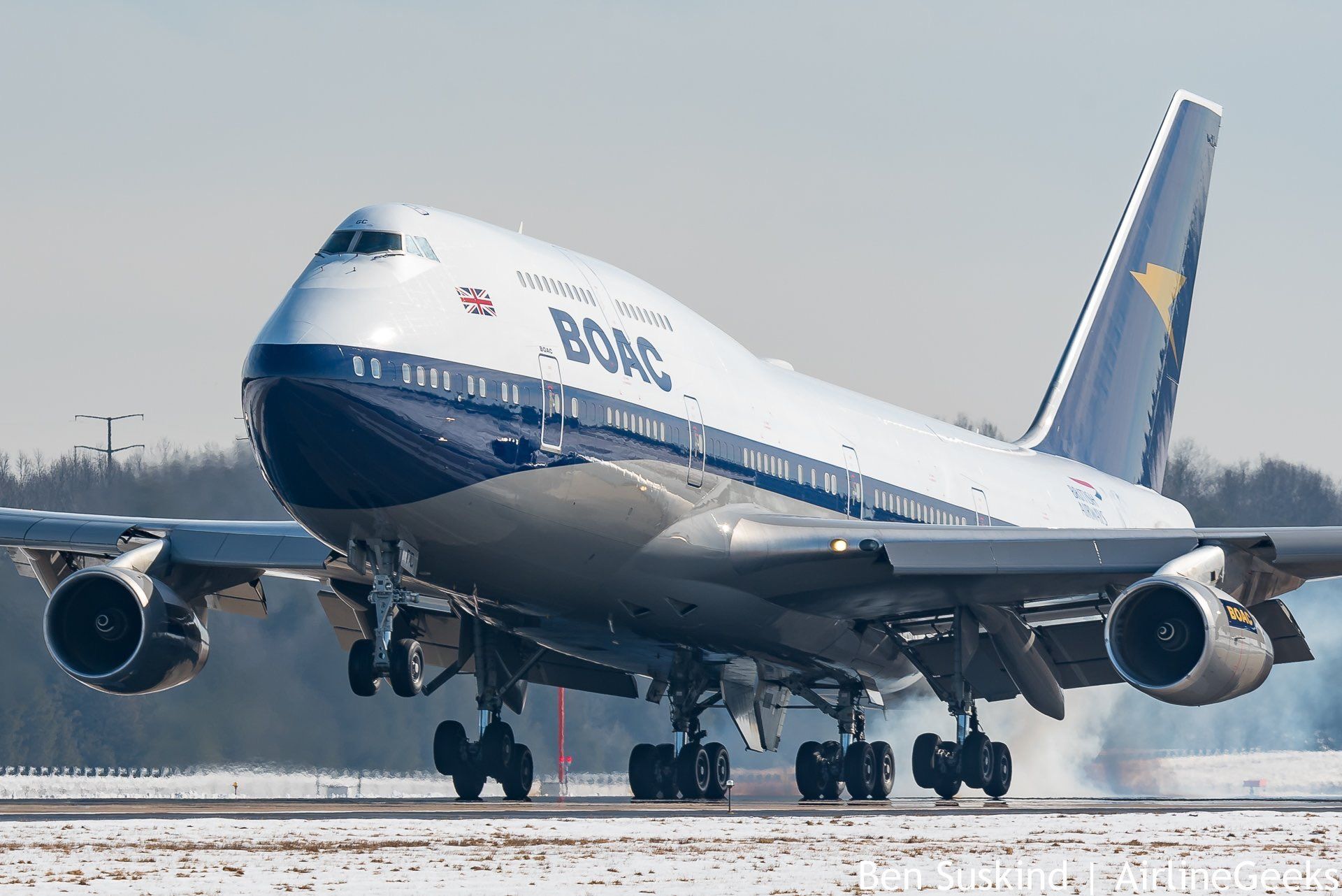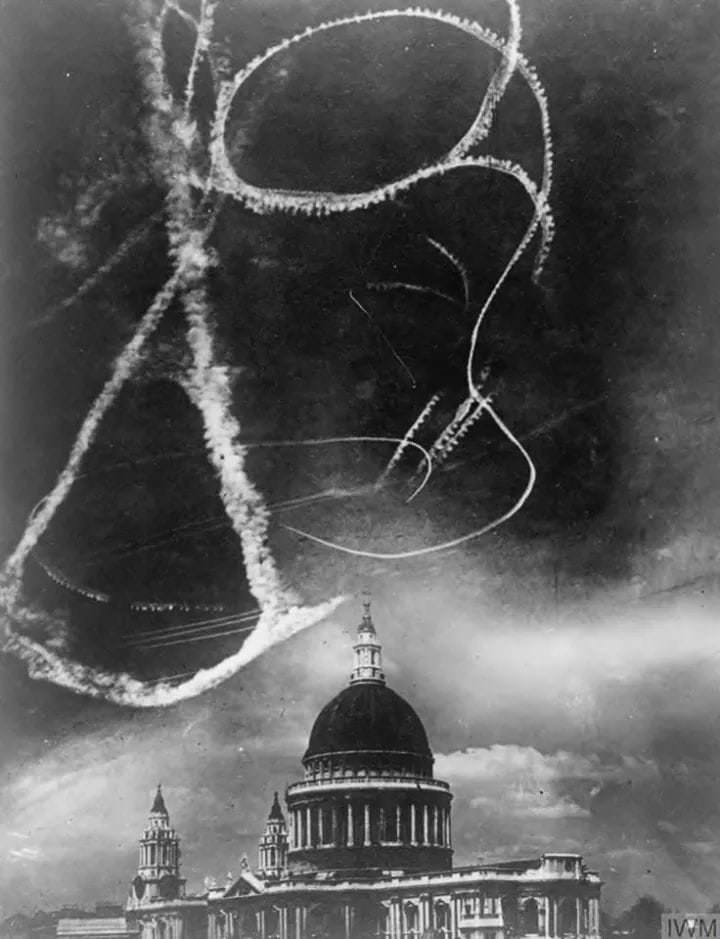2020: the Ugly, the Good and the Bad..?
2020: the Ugly, the Good and the Bad..?
Given the ongoing challenges we are all facing, contemplating some sort of retrospective on 2020 has been a daunting prospect. The global pandemic has hit all industries and sectors - aviation is no exception; and let us not forget the many individuals and families who have felt the impacts of COVID-19 at quarters far too close. It is all too easy to consider the downturn, economic and employment impacts and cite a plethora of gloom-ridden data - one needs only to look to the skies or consult FlightRadar24 to see the decline in air traffic levels. Instead, we would like to consider other aspects of the current situation and - hopefully - tease out some positives (oh, and offer an obligatory list for Santa!).
Source: Hue 12 Photography
The aviation sector is no stranger to shock events - 9/11, the financial crash and the eruption of Eyjafjallajökull (the Icelandic volcano, people…). Such events cause upheaval and prompt the industry to rethink certain facets of its business, but the industry always recovers. Admittedly, 2020 has seen the most extensive and prolonged disruption to global aviation (which looks set to stay for a while), but one would hope that the industry can prepare itself for the inevitable recovery.
One could argue that history and our collective experiences do not necessarily promote such optimism - history has shown us that the aviation industry tends to be reactive, vice pro-active. Many of us will remember “rollercoaster rides” of organisations shedding experienced personnel when times get hard, only for the same organisations to play a seemingly never-ending game of catch-up when things start to ramp up again! Without being dismissive of the associated financial challenges, the aviation sector could indeed have a once-in-a-generation opportunity to ensure its thorough preparedness for a strong recovery.
Such preparation must cover many facets and, as an industry, we must - surely - take the golden opportunity afforded us by the drop in both traffic and subsequent airspace usage to reassess and regroup to redevelop in a more sustainable form. For example, there is a growing recognition within the industry that looking after people's wellbeing has demonstrable positive impacts on safety, efficiency and individual commitment. EASA are creating and rolling-out guidance materials that support companies and individuals in recognising and dealing with mental and physical wellbeing - both at and away from the work environment. Avigation is very proud to be contributing to this valuable effort, through its membership of the T-C Alliance - a key EASA partner in this area.
In addition, we simply cannot ignore aviation's environmental impact, and we (individually and collectively) must strive to reduce that impact; this must be a/the central theme to a long-term and more sustainable recovery. Rightly, there has been a growing voice extolling the “positive” of the last 9 months - the significant reduction in transport noise and associated pollution; aviation is very much in that mix. Academia, technology and the aviation industry are making significant strides in developing solutions in this area. The aviation sector and industry, however, have a fantastic opportunity to embrace this ‘positive’ and redouble efforts to reduce its environmental impact: developing more fuel-efficient engines and pursuing advancements in alternate propulsion systems are but 2 examples of continuing achievements.
Furthermore, the airspace and ATM systems have their parts to play. Many of us have thought about how great it would be to have a "blank sheet of paper" to redesign airspace and procedures, which - hitherto - had developed organically and in the pursuit of greater capacity. One could argue that, with the current paucity in air traffic (globally), now is the opportune time for major innovations in airspace design - when do we really anticipate needing more capacity? Should/Could we not use this opportunity to better shape the airspace construct?
Any airspace ‘innovation’ must actively embrace and integrate eVTOLs and UAVs (drones - call them what you will); these technologies are developing at a fantastic rate and they are very much part of our lives - UK’s DfT predicts that, by 2030, eVTOLs and UAVs could be the major airspace vehicles! Much work is being conducted in the development of these vehicles and their propulsion systems. While (shorter..?) strides are being made in developing the associated airspace requirements and regulations, concern is being expressed by many stakeholders (in both the legacy and future aviation sectors) that airspace development is trailing that of eVTOL/UAV technological capabilities. Again, surely now is the time for accelerating this work, lest a real opportunity be missed.
We all acknowledge that the industry will look quite different when we emerge from the COVID-19 crisis, but the opportunity is there to shape the industry for the better. At Avigation, we believe that there indeed remains room for optimism; actively, we will continue to support positive change and continue to be at the heart of driving those changes.
Having considered briefly the future of aviation, it is perhaps apposite and poignant to reflect on the passing of 2 aviation icons during 2020.
Source: Ben Suskind | Airline Geeks
Many airlines retired their passenger carrying B747s, and British Airways was no exception; the final BA pair departed Heathrow in October. Many of us can remember the excitement of the introduction of the Jumbo into service and remember seeing the first BOAC B747 in heritage livery at Heathrow in the early 1970s. The retirement from BA service of this iconic aircraft, that has been part of many of our lives, was scheduled for 2023, but the impact of COVID-19 accelerated that retirement. The final 2 BA B747s have been spared the ignominy of being broken up for scrap; both will be preserved as heritage pieces. We also bade farewell to Chuck Yeager, the man credited with being the first to fly supersonic; he went on to break several other speed and altitude records, helping to pave the way for the US space programme. Yeager was a true pioneer of the jet and space eras and leaves a n untouchable legacy.
Source: Getty Images
And, finally, our list for Santa...
In an earlier blog, we highlighted how the implementation of PinS in the UK lags far behind that of Europe and other areas around the world; one of the major inhibitors is the number of regulatory hoops that UK PinS sponsors must jump through. UK CAA’s insistence on PinS adherence to the strictures of UK CAP1616 prolongs the implementation process and adds unnecessary costs, more often than not for those who do not have the resources to commit to such a course of action (despite a clear need for the operational benefits - for example, HEMS).
So, top of our (aviation) list to Santa is that the UK CAA: recognise the prevailing unprecedented situation; move away from what is seen by many as an unswerving dedication to process; and start applying a modicum of pragmatism and common-sense to support this operational benefit to the UK rotary wing community. CAA’s support (like their EU mainland regulatory colleagues) in the implementation of GNSS PinS procedures would go a long way to help open the industry and enable safer operations all round, particularly in the HEMS environment. Come on Santa (and CAA)!
As 2020 limps to the finish line, we know that Christmas will be different, but it will still be Christmas. Moreover, a new year is just around the corner, which is the perfect opportunity for optimism (be that continued or renewed - you decide).
Avigation wishes you all a very safe and happy Christmas and all the very best for 2021. Last one: eat your sprouts!








